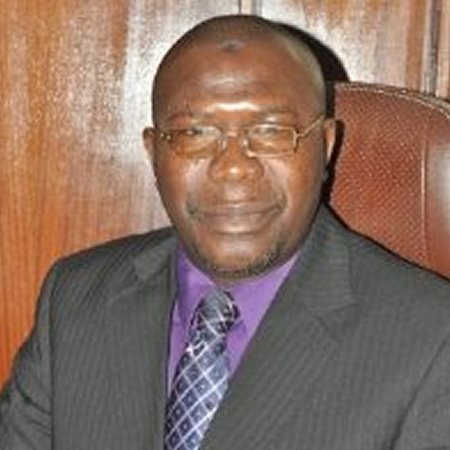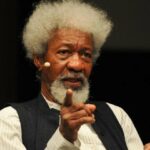
It is trite but true to restate that Nigeria’s major problem is leadership! Despite her abundance of natural and human endowments, the country perhaps simply lacks quality leadership that could have translated people’s dreams into realities. Consequently, the Nigerian environment has been nothing, if not funereal. Public larceny on an apocalyptic scale is the hallmark of many successive Nigerian leaderships. More poignantly, quite a number of our leaders are in the habit of trading merit for mediocrity without caring a hoot!
Whereas, leadership, according to an Austrian-American management consultant, Peter Drucker, is lifting a person’s performance to a higher standard, the building of a personality beyond his normal limitations. Leadership is about the strength of mind, self-confidence, far-sightedness and good judgement. It is the ability of an individual or a group of individuals to lead, guide, influence and organise in an effective manner and inspire the led towards the fulfilment of the organisation’s goals and balancing the conflict of interests of all subordinates and stakeholders.
This is the background with which this writer spent two days in Lagos recently in order to verify the emerging positive claims that the Nigerian Institute of Medical Research, under the leadership of Prof. Babatunde Lawal Salako, has initiated a paradigm shift with his uncommon leadership that have consequently turned the hitherto bad story of the institute into a success story.
The NIMR is the nation’s foremost Institute of medical research with a vision to be an institution of excellence in basic, applied and operational research for the promotion of National Health and Development. Its mission is to conduct research into diseases of public health importance in the country and develop structures for the dissemination of research findings. It is expected to do this by providing an enabling environment and facilities for health research and training in cooperation with the federal and state ministries of health. The NIMR is also expected to collaborate with universities, allied institutions and organised private sectors nationally and internationally.
However, rather than face its mandate, this institute, which was established in 1977, was in recent memory caught in a double whammy of serial unrest on account of alleged poor leadership, eroding budget as well as a stifling operational environment. Until Prof. Salako was appointed in 2016, the problems facing the institute seemed intractable as NIMR was extremely impecunious. The situation was as dark as it was dire. It was as if there was a spell, which had dazed the workers. Incessant strikes were a recurring decimal as there was career stagnation!
There was a massive brain drain because the environment was not only toxic but noxious and asphyxiating. Interestingly, this was when the former Provost of College of Medicine, University of Ibadanwas appointed as the Director-General and Chief Executive Officer of NIMR, Salako came amidst the crisis but if indeed we are all products of our environment and experience with which we can manage any given situation, he probably has his job cut out as he had sufficient experience to handle such a situation. To everyone’s surprise and delight, he called what he termed a “Town Hall” meeting (as it is the practice in UI) where he listened to all members of staff and unfolded his own agenda.
Testifying, NIMR Deputy Director (Administration), Mr Bitrus Nimlyat, disclosed, “everyone was shocked when he told us that he was appointed to work and turn the situation around for the better. Therefore, he told us he was not interested in rumour, religious and tribal sentiments, but rather, hard work and results. When some people went to him and advised him to sack or transfer staff who were perceived to be loyal to the former administration, he replied that he was not appointed to sack anybody. Can you believe that those who worked with the former DG are still the same set of people working with Prof Salako? This man is too amazing. His leadership styles are uncommon.”
In his own assessment, NIMR Chief Research Scientist and Team Leader, Dr Onwuamah Chika, declared that “Prof Salako is a God-sent to NIMR with his own unique leadership qualities which have significantly transformed this place. Nobody believed we could experience this kind of life-changing transformation because of his leadership styles. We can talk from now till tomorrow about this enigma who has since been promoting research and scholarship and expanding the frontiers of intellectualism”
But what is the magic wand employed by the DG to bring about this success story? Prof. Salako himself explained that the first step he took “was a special appeal he made to the then Health Minister, Prof. Isaac Adewole, who graciously increased the budget allocation of the NIMR from the paltry N50m to N950m. After that, I deployed the UI’s standard, using a committee system. We restructured governance systems. We created different committees in order to decentralise power. People began to show appreciation and confidence in the administration.”
Prof Salako added that he gave every department and unit an opportunity to exercise their rights of choice as “I cannot be dealing with adults and be applying juvenile principles.” He confirmed that as a leader, his principal job is to create an operating environment where staff members can thrive.
To this end, in 2019 for instance, NIMR witnessed innovations and new initiatives in translating medical products and services, filling the gaps in diagnostics and laboratory needs in the area of life science and drug development. As a way of improving human capacity for research, intramural research awards were given to deserving junior and senior research fellows who keenly competed to get the grant. A few NIMR extramural grants were also awarded to five postgraduate students in four collaborating universities to research viral haemorrhagic fever, especially Lassa fever, which has become a perennial outbreak in Nigeria.
The DG also said, “we established NIMR Research Foundation as a public-private outfit to support government research funding, specifically in the area of training PhDs and MDs; and supporting grant writing training workshops. The management also established three new laboratories, namely, Central Research Laboratory and two Tissue Culture Laboratories for Malaria and arbour viruses to further strengthen laboratory capacity for basic research which has led to our current experiment in vaccine development. A new researcher’s suite was also built to solve accommodation challenges of researchers from outside the country visiting the Institute to undertake bench work.”
In 2020 when the COVID-19 pandemic ravaged the world, NIMR did a lot, deploying health research expertise and making modest strides in genomic surveillance, COVID-19 testing, and reporting towards the response to curbing the pandemic. At the threshold of the pandemic in Nigeria, NIMR was responsible for the genetic sequencing of the Index COVID-19 case that earned the country international commendation.
So far, Prof. Salako’s leadership styles have remained a tonic for the tired souls of NIMR. Displaying the humble mien and imperturbable equanimity of the quintessential scholar-technocrat, he has the tremendous gift of shining a radiant light on unrecognised paths and projects. The incandescent spirit of his intellectual creativity has clearly added depth and breadth to hitherto uncharted territories and terrains. He is so committed to the healing of the ills of the NIMR.
Indeed, with his efforts, the NIMR has become a place of light, liberty and learning. He is a man with a gallant and empathetic personality, which enables him to straddle easily across religious, social and educational barriers to access the hearts of all cadres of people. One can clearly describe him as a conveyor belt to deliver goods and services.
As a leader, he remains resilient in serving the nation as a burden bearer, combining technical brilliance with strategic savvy. With what he has done, staff members do not want Prof. Salako to leave. They say he has done more than they expected.
Amazingly, Prof. Salako never bothers about the trappings of power nor is he given to tooting his own trumpet. Obviously, pundits believe he has done well with the opportunity given to him as he is so warm, so effervescent. He is so unself-conscious about his prodigious administrative acumen.
Prof. Salako will be a year older on Saturday, having been born onJuly 23, 1959 to Alhaji and Alhaja Ibathllahi Salako. He attended the University of Ibadan where he bagged an MBBS degree in 1986. Salako joined the UCH in April 1990 for Residency training in the Department of Medicine and obtained the Fellowship of the West African College of Physicians. He was elected a Fellow of the Royal College of Physicians of Edinburgh in September 2014 and the Royal College of Physicians of London in May 2016.
Happy birthday, sir. You have done UI proud.
Saanu of the University of Ibadan writes via [email protected]





